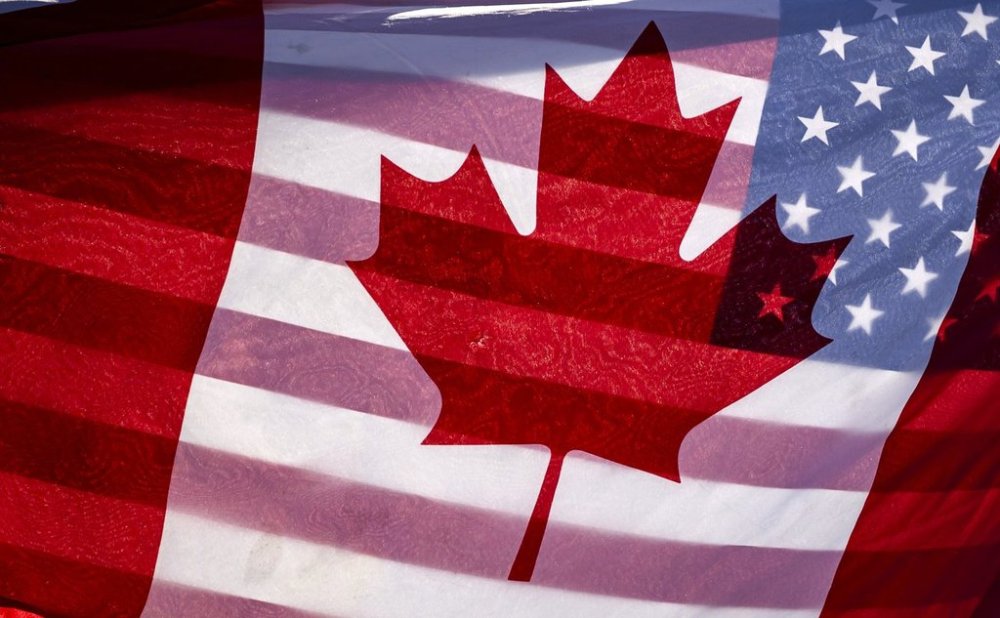US cities located in states won by Trump would be most hurt by Canadian tariffs, an analysis finds
Advertisement
Read this article for free:
or
Already have an account? Log in here »
To continue reading, please subscribe:
Monthly Digital Subscription
$0 for the first 4 weeks*
- Enjoy unlimited reading on winnipegfreepress.com
- Read the E-Edition, our digital replica newspaper
- Access News Break, our award-winning app
- Play interactive puzzles
*No charge for 4 weeks then price increases to the regular rate of $19.00 plus GST every four weeks. Offer available to new and qualified returning subscribers only. Cancel any time.
Monthly Digital Subscription
$4.75/week*
- Enjoy unlimited reading on winnipegfreepress.com
- Read the E-Edition, our digital replica newspaper
- Access News Break, our award-winning app
- Play interactive puzzles
*Billed as $19 plus GST every four weeks. Cancel any time.
To continue reading, please subscribe:
Add Free Press access to your Brandon Sun subscription for only an additional
$1 for the first 4 weeks*
*Your next subscription payment will increase by $1.00 and you will be charged $16.99 plus GST for four weeks. After four weeks, your payment will increase to $23.99 plus GST every four weeks.
Read unlimited articles for free today:
or
Already have an account? Log in here »
Hey there, time traveller!
This article was published 27/03/2025 (246 days ago), so information in it may no longer be current.
WASHINGTON (AP) — The U.S. cities most vulnerable to a trade war with Canada turn out to largely be in the states that helped return Donald Trump to the White House — a sign of the possible political risk he’s taking with his tariff plans.
A new analysis released Thursday by the Canadian Chamber of Commerce detailed the areas most dependent on exports to Canada, with San Antonio and Detroit topping the list of 41 U.S. metro areas. The findings show that the United States’ 25% tariffs on Canada and Canada’s retaliations could inflict meaningful damage in key states for U.S. politics.
The analysis was conducted before the Republican president announced Wednesday that he was placing additional 25% tariffs on imported autos and parts starting on April 3.

“The consequences of today’s escalation in this destructive tariff war will not be contained to Canada, as much as the U.S. administration would like to pretend,” said Candace Laing, president and CEO of the Canadian Chamber of Commerce. “Throwing away tens of thousands of jobs on both sides of the border will mean giving up North America’s auto leadership role, instead encouraging companies to build and hire anywhere else but here. This tax hike puts plants and workers at risk for generations, if not forever.”
Nearly half of what San Antonio exports, with its aerospace, auto and energy sectors, goes to Canada. About 40% of what the auto-driven Detroit area exports also goes to Canada. Trump’s wins in Michigan, Pennsylvania and Wisconsin were crucial for his overall victory in November’s presidential election — and Milwaukee and Pittsburgh also rank in the top 10 for exposure to a trade war with Canada.
Other cities most dependent on exports to Canada include Kansas City, Missouri; Louisville, Kentucky; Nashville, Tennessee; Columbus, Ohio; Chicago; and Cleveland. All of those states aside from Illinois backed Trump in the last election.
Trump has placed 25% tariffs on many goods from Mexico and Canada, with a lower 10% tax on energy products from Canada. Some of those tariffs have been suspended or delayed, though they’re set to fully hit in April.
Canadian leaders have warned that the United States would suffer in the form of higher prices, fewer jobs and slower growth because of the trade war. But an analysis by the Brookings Institution found that the economic pain would be more severe in Mexico and Canada because those countries are more reliant on the United States in terms of trade.
Trump’s stated reason for the tariffs is to stop illegal immigration and drug smuggling, though he’s also said that he dislikes the trade deficit with both countries and has taunted Canada by suggesting that it could become the 51st U.S. state.



